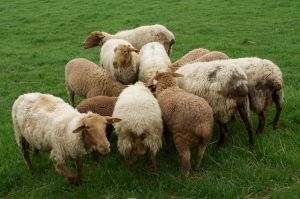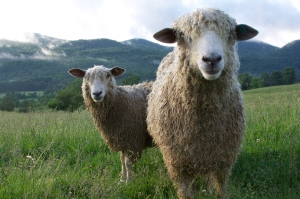One of our farm goals is to preserve livestock breeds that are on the conservancy list. We want to stop amazing animals from disappearing because the qualities they have are worth saving. http://www.livestockconservancy.org/index.php/heritage
According to the Livestock Conservancy website: “What Are Heritage Breeds?”
“Heritage breeds are traditional livestock breeds that were raised by our forefathers. These are the breeds of a bygone era, before industrial agriculture became a mainstream practice. These breeds were carefully selected and bred over time to develop traits that made them well-adapted to the local environment and they thrived under farming practices and cultural conditions that are very different from those found in modern agriculture.
Traditional, historic breeds retain essential attributes for survival and self-sufficiency – fertility, foraging ability, longevity, maternal instincts, ability to mate naturally, and resistance to diseases and parasites.”
The above description of Heritage Breed animals fits within our farm goal; raising livestock that can be pasture raised using little or no grain, have high survival rates for our climate year round in Maine, have a high disease resistance tolerance and low parasite load to keep our pastures and animals healthy.
We want our animals to be healthy, happy and out in nature with minimal human input. Our animals are allowed to be themselves and live out their lives with their needs met and ample space.
We have a rotational grazing management plan in place that allows our animals to work together providing a good foundation for pasture grazing. For example, our chickens and other fowl follow the cows on pasture cleaning up bugs and parasites, spreading the manure fertility throughout the pasture, and help improve the soil.
Check out this film: “How Chickens work with Cows to improve the soil.” http://www.ecofilms.com.au/how-chickens-work-with-cows-to-improve-soil/
ATTRA- provides a free PDF download for more information on rotational grazing:
https://attra.ncat.org/attra-pub/summaries/summary.php?pub=245


